
a16z Live
Andreessen Horowitz
a16z Live is the place to listen to recorded live discussions and events featuring, hosted, or co-hosted by a16z partners (with outside voices too). As a reminder, all content posted here is provided for informational purposes only, and should not be relied upon as legal, business, investment, or tax advice. Views expressed are those of the individuals and not the views of Andreessen Horowitz, please see a16z.com/disclosures for more. To learn more about the broader a16z Podcast network and shows, please visit a16z.com/podnetwork.
- 26 minutes 38 secondsHow Jack Henry is Modernizing Banking Infrastructure
Most financial institutions still bank on software built before the internet, but Jack Henry's CTO, Ben Metz, is leading a quiet revolution to change that. Speaking with a16z General Partner Angela Strange, Metz shares how banks’ historical tech infrastructure and regulatory obstacles have stymied innovation—and how Jack Henry is helping them overcome these challenges. Metz outlines actionable ways startup founders can help smaller community banks leverage artificial intelligence and cloud computing, reshaping the industry at large.
Chapter Breakdown:
0:47 Backstory
2:15 Community banks and historical infrastructure
4:30 Pre-internet banking & software realities
6:45 Challenges of scaling historical banking tech
8:30 Building software & COBOL
12:15 Dissecting core banking systems
15:40 How regulatory hurdles impact innovation
18:30 Mobile banking and market shiftsT
22:45 Integrating AI into banking's foundation
25:30 Digital service core to banking
28:15 Where AI will be integrated first
31:20 Advice for fintech founders
34:45 Building a data platform to enable innovation
38:20 Working together: banking & tech startups19 December 2024, 2:30 pm - 40 minutes 16 secondsBuilding a $20B+ Open Source Business with MongoDB's Eliot Horowitz
a16z Partner Seema Amble talks with MongoDB and Viam co-founder Eliot Horowitz about building sustainable open source software tools. From challenging Oracle to building the de facto cloud-based database management tool, Horowitz outlines MongoDB’s early go-to-market strategies, approach to community building, and enterprise sales motion. This episode provides detailed tips on creating solutions for the developer community, building trust amongst enterprises, and successfully scaling a business supported by the open source community.
01:18-03:42 Why open source is a strategic business decision
3:42:6:03 Product development strategy + making developers’ lives easier
6:03-08:24 MongoDB strategy of building community through meetups
08:24-10:49 The five-second rule for developer products
10:49-13:09 How MongoDB used meetups to fuel growth
13:09-15:35 The importance of getting people excited about your product
15:35-19:29 MongoDB’s enterprise sales strategy
19:28-20:26 MongoDB’s recruiting strategy
20:26-25:12 Open source customers vs. users, adoption patterns
25:12-27:35 The evolution of enterprise deals and building trust through demos
27:35-32:23 Product communication strategies and tactics
32:23-39:37 Managing customers and building long-term relationships
39:37-40:16 Outro
12 December 2024, 3:08 pm - 31 minutes 59 secondsHow Zapier Became Profitable in 3 years and Scaled to $5B with Wade Foster
a16z Partner Seema Amble connects with Zapier co-founder Wade Foster about the company’s founding and GTM success utilizing a product-led growth (PLG) strategy. Chock-full of actionable insights, this episode explores Zapier’s product strategy, customer experience, and how the team built a sustainable growth engine that enabled them to reach profitability within three years. Foster also provides valuable guidance on brand strategy and how creating an unconventional “weird” brand helped Zapier differentiate from competitors.
1:15-2:05 Zapier's origin story
2:05-3:13 Initial product idea
3:13-5:06 Finding product-market fit and YC
5:06-7:43 How Zapier found their early customers
7:43-10:15 Strategic approach to identifying services to integrate
10:15-13:28 Identifying customer needs and optimizing onboarding
13:28-16:10 Developing a scalable customer acquisition strategy
16:10-19:07 Guidance on building a successful self-serve product
19:07:23:52 Early pricing experiments and brand evolution
23:53-27:04 Early hiring strategy
27:04-29:59 Reflecting on Zapier’s brand identity and product strategy
29:59-31:19 Advice for founders regarding customer acquisition and GTM
31:19-31:59 OutroPlease note that the content here is for informational purposes only; should not be taken as legal, business, tax, or investment advice or be used to evaluate any investment or security; and is not directed at any investors or potential investors in any a16z fund. a16z and its affiliates may maintain investments in the companies discussed. For more details please see
.
10 December 2024, 1:56 pm - 30 minutes 34 secondsHow Gusto Used Customer Input to Scale Growth with Tomer London
In this episode, a16z Partner Seema Amble chats with Tomer London, co-founder of Gusto, about establishing product-market fit and product discovery. London shares how Gusto, now valued at ~$10 billion with 300,000+ customers, identified early customers who could provide valuable feedback that helped the team optimize the self-service product experience. The conversation explores Gusto's approach to product development, as well as managing and incorporating customer feedback while maintaining a clear product vision.
1:18-3:14 Gusto’s founding story
3:14- 4:56 Solidifying a GTM sales strategy
4:56-10:03 Identifying early customers and perfecting the sales pitch
10:03-12:45 Working with customers to optimize the product UX
12:45-14:31 Engendering trust and finding success with accountants
14:31-16:41 The role accountants planned in Gusto’s success
16:41-19:34 Creating a feedback funnel and balancing product vision
19:34-22:38 Self-service strategy and measuring success
22:38- 23:45 Refining the UX at scale
23:45-25:45 Identifying real-world use cases to inform product strategy
25:45-29:52 GTM learnings and advice
29:52-30:05 OutroPlease note that the content here is for informational purposes only; should not be taken as legal, business, tax, or investment advice or be used to evaluate any investment or security; and is not directed at any investors or potential investors in any a16z fund. a16z and its affiliates may maintain investments in the companies discussed. For more details please see a16z.com/disclosures.
5 December 2024, 4:22 pm - 37 minutes 7 secondsHow to Build a Thriving AI Ecosystem with Lisa Su, CEO of AMD
High-performance compute is the bedrock of generative AI, and if there’s anyone who knows about high-performance chips, it’s AMD CEO Lisa Su. In this wide-ranging conversation with a16z Operating Partner Bob Swan—himself formerly CEO of Intel—Lisa lays out her vision for the evolution of compute within the AI ecosystem, touching not only on raw power and the continuation of Moore’s Law, but also how AMD will support “the right compute for each form factor” for a wider ranges of real-world gen AI use cases. Lisa also shares her perspective on the state of chip manufacturing, how AMD matches their R&D cycles to fast-moving industries, and how partnerships build strong ecosystems.
Read more, including a full transcript, here: https://a16z.com/how-to-build-ai-ecos...
Time stamps:
[00:01:37] Lisa's career in compute
[00:04:48] Compute in the genAI era
[00:09:39] High performance or multimodal?
[00:10:47] Making the genAI ecosystem open
[00:14:16] The chip supply chain
[00:17:53] Resiliency and the CHIPS Act
[00:20:54] How AMD balances long development cycles with short term innovation
[00:24:48] Learnings from the hyperscaler market
[00:26:54] What being fabless means for AMD
[00:31:24] Lisa's advice for startup foundersFind more content from our AI Revolution series on www.a16z.com/AIRevolution.
Please note that the content here is for informational purposes only; should NOT be taken as legal, business, tax, or investment advice or be used to evaluate any investment or security; and is not directed at any investors or potential investors in any a16z fund. a16z and its affiliates may maintain investments in the companies discussed. For more details please see a16z.com/disclosures.
30 October 2024, 6:43 pm - 58 minutes 31 secondsa16z Growth's David George on His Frameworks for Late-Stage Investing
Finding and backing companies that can reach escape velocity is the name of the game over here at a16z Growth—but picking those winners is far from easy. David George, head of the a16z Growth fund, sat down with the I/O podcast to discuss his mental models for growth-stage investing, what it really takes to go public, where AI is today and where it’s headed, and more.
[00:03:19] What makes Andreessen Horowitz different
[00:08:29] David's mental model for investing
[00:18:23] Focusing on inputs, not outputs
[00:26:52] What constitutes a growth company?
[00:29:14] David's three investing frameworks
[00:36:45] How to measure the ROI of R&D
[00:42:15] What it takes to go public today
[00:46:43] AI: market structure and infrastructure vs. application layers
To read a transcript of this conversation, click here.
15 October 2024, 1:00 pm - 35 minutes 8 secondsWhy Human Data is Key to AI: Alexandr Wang from Scale AI
In this conversation with a16z general partner David George, Scale AI founder and CEO Alexandr Wang discusses the three pillars of AI—models, compute, and data—and how creating abundant data is core to the evolution of gen AI. With Scale’s work across enterprise, automotive, and the public sector, Alex is also building the critical infrastructure that will allow any organization to use their proprietary data to build bespoke gen AI applications. In addition to talking about frontier data, Alex also shares his learnings from the growth of Scale, his approach to leadership, and what he thinks growth-stage founder/CEOs tend to get wrong about hiring.
Read more, including a full transcript, here: https://a16z.com/frontier-data-foundries-alex-wang-scale-ai/Timestamps:
[00:00:58] How frontier data will change gen AI
[00:08:47] Are big tech companies over-investing in AI?
[00:14:39] Where the best AI businesses will thrive
[00:17:05] How enterprise businesses are approaching AI adoption
[00:19:50] What does the next phase of gen AI products look like?
[00:23:23] Alex's approach to scaling Scale
[00:25:36] The founder fallacy
[00:30:12] MEI and how Alex views talent acquisition
4 October 2024, 5:23 pm - 23 minutes 25 secondsIn the Vault: Assessing AI Impact vs. Hype with John Stecher of Blackstone
a16z general partner David Haber talks to John Stecher, Chief Technology Officer at Blackstone, where he advances cutting-edge technology, heads up innovation investing, and advises the firm’s investment teams and portfolio companies. The conversation covers how he decides whether to build tech in-house or partner with startups, what qualities he’s looking for in early stage companies, and how he sees AI impacting real estate, credit, energy, and ecommerce.
0:00-1:05 Intro
1:06-3:55 Changes in finance x tech over the past 2 decades
3:56-5:06 Investing in "themes" across asset classes
5:07-7:00 What the CTO role entails
7:01-9:00 "Build it" vs. "buy it": trade-offs
9:01-11:57 Advice for early stage companies
11:58-16:37 Ways Blackstone is incorporating generative AI
16:38-17:46 How AI changes the role of an analyst
17:47-21:04 Gen AI's impact on private equity, real estate, credit, more
21:05-22:54 How Blackstone will evolve over the next five years
22:55-23:26 Outro
Please note that the content here is for informational purposes only; should not be taken as legal, business, tax, or investment advice or be used to evaluate any investment or security; and is not directed at any investors or potential investors in any a16z fund. a16z and its affiliates may maintain investments in the companies discussed. For more details please see a16z.com/disclosures.
25 September 2024, 3:00 pm - 24 minutes 12 secondsIn the Vault: AI and Banking Innovation with Tim Karpoff of Citi
a16z general partner David Haber and fintech partner Marc Andrusko talk to Tim Karpoff, the Global Head of Strategy at Citi, where he guides the bank’s core focus areas, as well as future investment in emerging tech like AI. The conversation covers the shifting landscape of banking policy and regulation, the increasingly important role startups are playing in partnership with big banks, and where Tim disagrees with the zeitgeist when it comes to the adoption of AI in financial services.
0:00-1:05 Intro
1:06-2:28 Navigating bureaucracy
2:29-4:26 What "chief strategy officer" entails
4:27-8:18 Citi's role in the banking ecosystem
8:19-9:16 Fallout from the 2023 banking crisis
9:17-13:10 Citi's revised risk controls and tech investment
13:11-14:59 How Citi works with startups
15:00-20:00 Citi's future: AI and regulation
20:01-23:33 What people get wrong when it comes to AI
23:33-24:12 Outro
Please note that the content here is for informational purposes only; should NOT be taken as legal, business, tax, or investment advice or be used to evaluate any investment or security; and is not directed at any investors or potential investors in any a16z fund. a16z and its affiliates may maintain investments in the companies discussed. For more details please see a16z.com/disclosures.
20 August 2024, 3:00 pm - 36 minutes 42 secondsBuilding the World’s Most Trusted Driver with Waymo's Dmitri Dolgov
Waymo co-CEO Dmitri Dolgov joined a16z general partner David George to discuss how Waymo is using genAI to help them build safer, sustainable, and more accessible transportation. In the conversation, Dmitri talks about the potential of embodied AI, the value of simulations and building training data, and his approach to leading a company focused on solving the challenges of building AI that can navigate the real world.
- [00:01:22] The early days of autonomous vehicles
- [00:05:27] Layering genAI into traditional AI/ML
- [00:09:42] The value of simulation
- [00:15:56] The hard part about integrating AI in autonomous systems
- [00:22:45] AI in the real world
- [00:28:47] Where does Waymo go from here?
- [00:37:21] Dmitri's learnings from hard problems
This conversation is part of our AI Revolution series, which features some of the most impactful builders in the field of AI discussing and debating where we are, where we’re going, and the big open questions in AI. Find more content from our AI Revolution series on www.a16z.com/AIRevolution.
13 August 2024, 2:00 pm - 32 minutes 2 secondsBringing Production-Ready GenAI to the Enterprise
As genAI expands through the enterprise, many leaders are figuring out how to evolve their genAI prototypes into production-ready tools. Pinecone CEO Edo Liberty and LangChain CEO Harrison Chase discuss which parts of the stack to build or buy, how to improve out-of-the-box models by helping customers select and ingest the right data, and picking the right partners to scale genAI applications with a16z Growth General Partner Sarah Wang.
- [00:02:16] Navigating the gap from prototype to production
- [00:07:03] How to educate partners on genAI tools and capabilities
- [00:11:38] Deciding whether to build or buy
- [00:17:36] Successful implementations of genAI
- [00:21:20] Balancing enterprise and open-source community needs
- [00:23:06] Balancing short-term revenue gains with long-term vision
- [00:25:18] Picking the right partners to scale
For a transcript of this episode of a16z Live!, click here.
7 August 2024, 2:00 pm - More Episodes? Get the App
Your feedback is valuable to us. Should you encounter any bugs, glitches, lack of functionality or other problems, please email us on [email protected] or join Moon.FM Telegram Group where you can talk directly to the dev team who are happy to answer any queries.
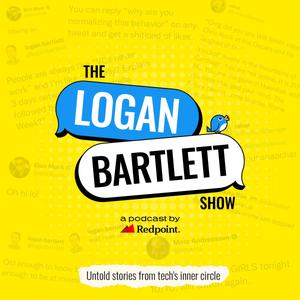 The Logan Bartlett Show
The Logan Bartlett Show
 The Ben & Marc Show
The Ben & Marc Show
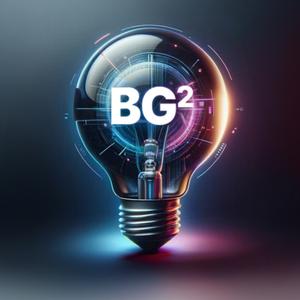 BG2Pod with Brad Gerstner and Bill Gurley
BG2Pod with Brad Gerstner and Bill Gurley
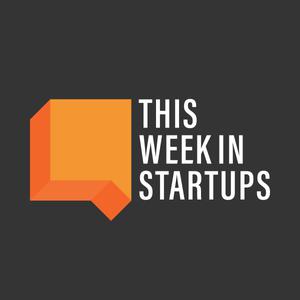 This Week in Startups
This Week in Startups
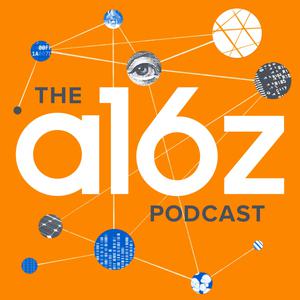 a16z Podcast
a16z Podcast
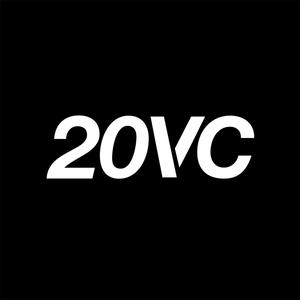 The Twenty Minute VC (20VC): Venture Capital | Startup Funding | The Pitch
The Twenty Minute VC (20VC): Venture Capital | Startup Funding | The Pitch